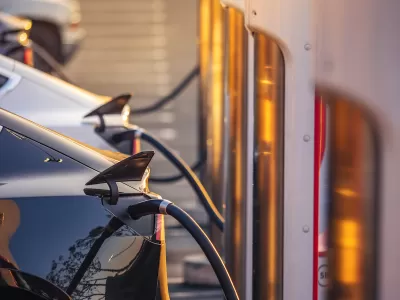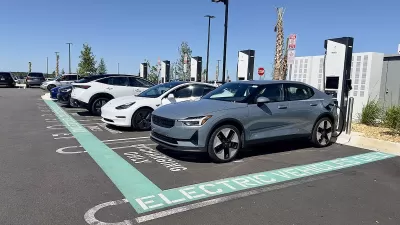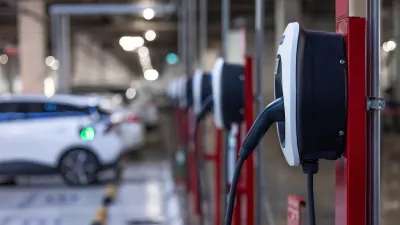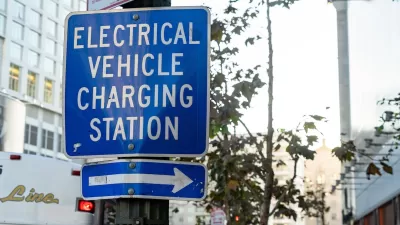A new UCLA study finds that while California has made progress in electric vehicle adoption, disadvantaged communities remain underserved in EV incentives, ownership, and charging access, requiring targeted policy changes to advance equity.

A new UCLA study finds that while California leads in zero-emission vehicle (ZEV) adoption and environmental justice goals, its clean vehicle incentive programs continue to fall short in equitably benefiting disadvantaged communities (DACs). Although Los Angeles County—home to over half of the state's DACs—has implemented initiatives like LADWP’s Powered by Equity and the city’s Green New Deal targets, significant disparities persist in EV ownership, incentive distribution, and public charging access. EV registration rates remain three times higher in non-DACs, and only 23% of LADWP’s EV incentive funding from 2013 to 2021 reached DACs, with most rebates benefiting wealthier, non-Hispanic white homeowners.
Beyond financial incentives, UCLA researchers identified a troubling gap in EV adoption and charging infrastructure availability. A related UCLA study revealed that ZEV ownership in non-DACs is nearly four times higher than in DACs, with racial and ethnic minorities owning fewer EVs regardless of income or location. While DAC residents experience greater air quality benefits from intercommunity ZEV trips, they remain disproportionately exposed to traffic-related air pollution due to limited access to EVs. Additionally, public charging stations are concentrated in higher-income areas, further restricting EV adoption in underserved neighborhoods. Case studies in Pacoima, South LA, Wilmington, and the Gateway Cities highlight extreme disparities in EV access, underscoring the need for stronger local, regional, and statewide efforts to close the equity gap.
To address these challenges, UCLA researchers recommend a significant policy shift, including increased funding for low-income EV incentive programs, improved financing options such as revolving loan funds, and stricter eligibility requirements to ensure clean vehicle incentives reach DACs. Expanding public EV charging infrastructure in disadvantaged areas and increasing transparency in investment decisions are also key steps toward achieving an equitable clean transportation transition. With Los Angeles playing a pivotal role in shaping California’s ZEV policies, its ability to close these equity gaps could set a model for nationwide clean energy solutions.
FULL STORY: Electric vehicle incentives, charging, and registration rates: Are we achieving equity in Los Angeles?

Planetizen Federal Action Tracker
A weekly monitor of how Trump’s orders and actions are impacting planners and planning in America.

Vehicle-related Deaths Drop 29% in Richmond, VA
The seventh year of the city's Vision Zero strategy also cut the number of people killed in alcohol-related crashes by half.

As Trump Phases Out FEMA, Is It Time to Flee the Floodplains?
With less federal funding available for disaster relief efforts, the need to relocate at-risk communities is more urgent than ever.

Judge Reverses Federal Funding Freeze for EV Infrastructure
A federal judge ordered the Trump administration to release funding for the National Electric Vehicle Infrastructure Program, a $5 billion program aimed at improving charging infrastructure.

Santa Monica May Raise Parking Permit Fees
The city says the changes would help better manage curb space and support its sustainability goals.

Portland Housing Bond Created Nearly 5,000 Units, But Affordability Remains Out of Reach
Despite better-than-expected results from multiple local housing bonds, housing costs and homelessness remain top of mind for many Oregonians.
Urban Design for Planners 1: Software Tools
This six-course series explores essential urban design concepts using open source software and equips planners with the tools they need to participate fully in the urban design process.
Planning for Universal Design
Learn the tools for implementing Universal Design in planning regulations.
JM Goldson LLC
Custer County Colorado
Sarasota County Government
City of Camden Redevelopment Agency
City of Astoria
Transportation Research & Education Center (TREC) at Portland State University
Camden Redevelopment Agency
City of Claremont
Municipality of Princeton (NJ)





























